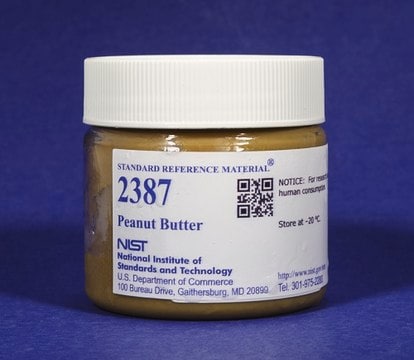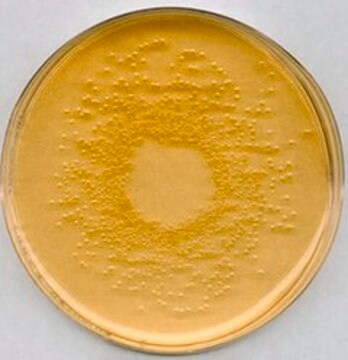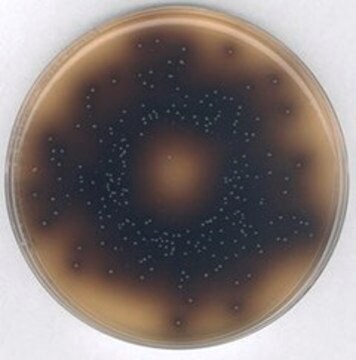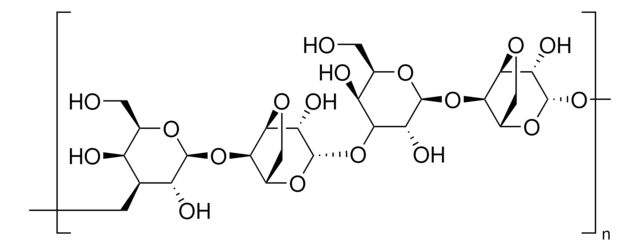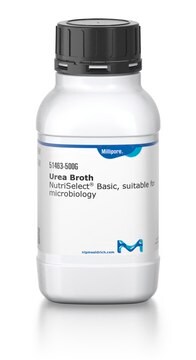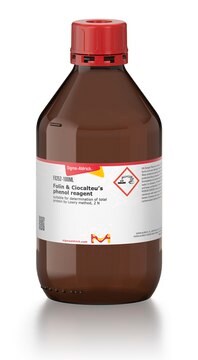60787
Kligler Agar
suitable for microbiology
Synonym(s):
Kligler Iron Agar
About This Item
Recommended Products
sterility
non-sterile
Quality Level
form
powder
shelf life
limited shelf life, expiry date on the label
composition
agar, 12 g/L
casein peptone, 10 g/L
ferrous sulfate, 0.2 g/L
glucose, 1 g/L
lactose, 10 g/L
meat extract, 3 g/L
meat peptone, 10 g/L
phenol red, 0.025 g/L
sodium chloride, 5 g/L
sodium thiosulfate, 0.5 g/L
yeast extract, 3 g/L
final pH
7.4±0.2 (25 °C)
application(s)
environmental
food and beverages
microbiology
suitability
nonselective and differential for Citrobacter spp.
nonselective and differential for Enterobacter spp.
nonselective and differential for Enterococcus spp.
nonselective and differential for Escherichia coli
nonselective and differential for Klebsiella spp.
nonselective and differential for Proteus spp.
nonselective and differential for Salmonella spp.
nonselective and differential for Shigella spp.
nonselective and differential for Yersinia spp.
nonselective and differential for coliforms
Application
Storage Class Code
11 - Combustible Solids
WGK
WGK 3
Flash Point(F)
Not applicable
Flash Point(C)
Not applicable
Personal Protective Equipment
Choose from one of the most recent versions:
Already Own This Product?
Find documentation for the products that you have recently purchased in the Document Library.
Articles
Salmonella contamination is the second leading cause of food-borne illness worldwide. Controlling outbreaks of Salmonella is an important task for food regulators, restaurants and the food industry in general. The Salmonella family includes over 2,300 serotypes of bacteria, but two types, Salmonella enteritidis and Salmonella typhimurium, are responsible for about half of all human infections. Most outbreaks of Salmonella are traced back to dairy, poultry and meat products, but Salmonella can grow on nearly any food. Chicken, eggs and their derivative products are particularly high risk.
Our team of scientists has experience in all areas of research including Life Science, Material Science, Chemical Synthesis, Chromatography, Analytical and many others.
Contact Technical Service